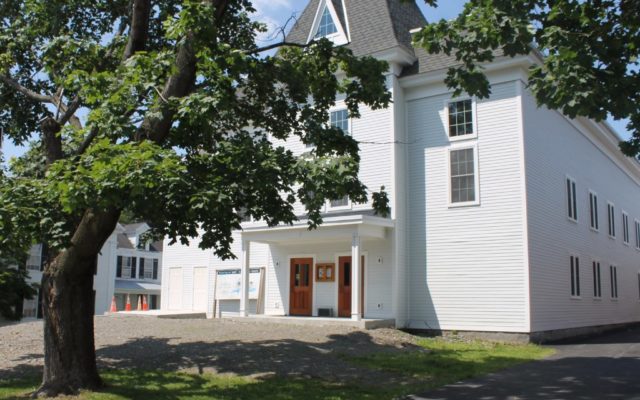
Gut-brain connection topic of Sept. 11 NAMI program
DOVER-FOXCROFT — Experiencing a headache, brain fog, anxiety or depression is frequently related to gut disorders or disease. That makes sense when we realize that the gut is connected to the brain via the Vagus nerve. Chemical messages that pass from the gut to the brain are affected by the viruses, bacteria and fungi that live in the gut. What we put into the gut influences the millions of good and bad bacteria that naturally live there. The more good bacteria there are, the more positive messages will be sent for good brain functioning.
An unhealthy gut can have conditions such as irritable bowel syndrome, small intestine bacterial overgrowth, leaky gut, acid reflux, constipation, diarrhea or gall bladder issues that cause anxiety. Dr. Daniel Nuzum, DO, from Idaho states, “You never have a mental disorder without a gut disorder. They always go together.”
Eighty five to 90 percent of the “feel good” neurotransmitter hormone serotonin is produced in the gut, not in the brain. Eighty five percent of the neurotransmitter hormone dopamine, which is responsible for focus and survival, is made in the gut. Because of the millions of neurons in the gut, it is known as “the second brain.” If there is inflammation in the gut, the production of these hormones, which are important for good mental health, is disrupted. Then, mental health issues ensue.
Causes of digestive problems in the gut microbiome, which extends from the mouth to the rectum, are related to agricultural practices and the use of antibiotics. Over the last 80 years, our agricultural system has increased the use of pesticides and herbicides. These poisons kill plants and insects and also can damage the thin gut lining that lies between the intestines and the immune system in the body cavity. More recently, genetically modified organisms, which tolerate herbicides, can be and frequently are sprayed with Roundup, which has been found to be a “probable human carcinogen” by the World Health International Agency for Research on Cancer. Antibiotics taken for infections and antibiotics that exist in the animals we may eat can also damage the gut lining.
On Wednesday, Sept. 11 at 1 p.m. at The Commons at Central Hall, a video presentation called “The Gut-Brain Connection: How to Heal Your Gut to Heal Your Brain” will be shown as part of the NAMI education program. It is free and open to all.
Viewing this program, you can discover (1) what steps you can take to prevent and reverse gut damage, (2) how to build and maintain a healthy microbiome and (3) what probiotic strains, fibers, and food heal the gut.
To register for this program, please call 924-7903 or write nami.piscataquis@gmail.com.